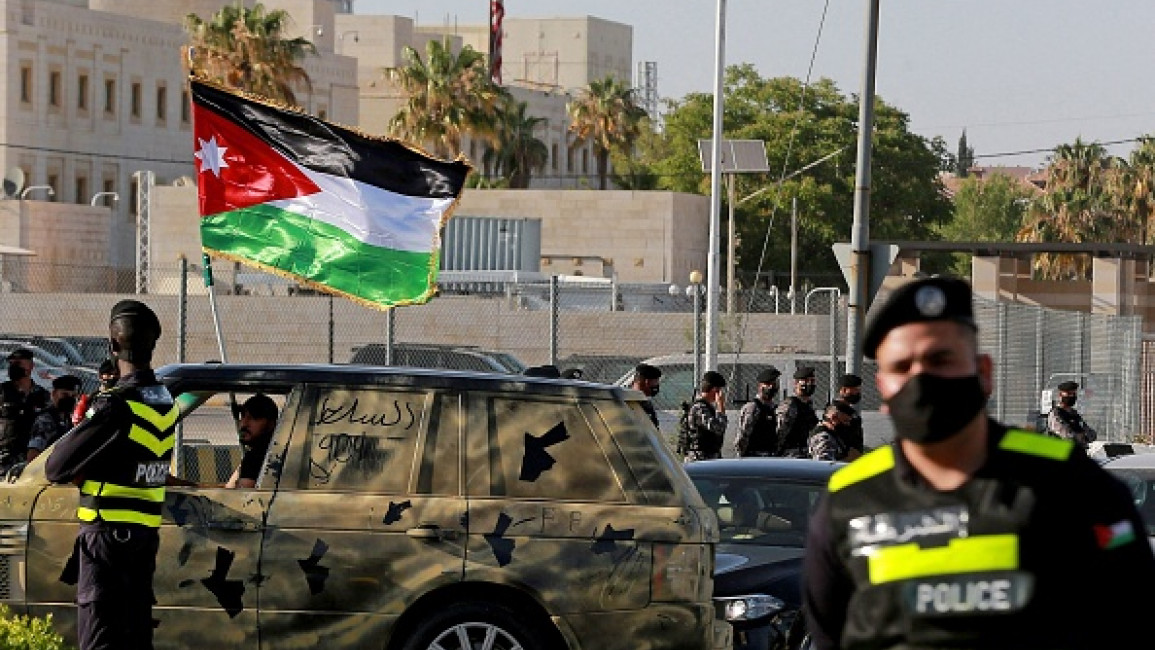Jordanian activists go on hunger strike to protest their arrest
At least two Jordanian political activists have gone on hunger strike following their arrest on Sunday night and subsequent imprisonment, their lawyers have told The New Arab.
Ibrahim al-Khalila and Abdullah Sbeih, the two individuals on hunger strike, are activists in the “Hirak” movement, a Jordanian political opposition organisation founded during the Arab Spring which advocates for democratic reform.
On Sunday night, Jordanian police raided the house of seven political opposition activists in a method described by Malak Abu Oraibi, a lawyer representing the activists, as “aggressive”.
“They called one of the activists and told him that his car had been involved in a traffic accident. When he went down [from his house], they took him,” Oraibi told The New Arab.
Three more political activists were later arrested by Jordanian authorities, bringing the total to ten detainees.
The activists are being charged with “spreading fake news” under Jordan’s electronic crimes law. Oraibi said the posts being cited by the authorities are “old” social media posts criticising the economic situation in Jordan and analysing the results of a previous parliamentary election.
The detainees were distributed across different prisons across the country, which has made it difficult for their families and lawyers to visit them. Oraibi added that the three detainees he visited on Wednesday were being kept in solitary confinement, in “unsanitary conditions and cells without heating.”
Jordan’s government sources reportedly told local media that the arrests of the activists are “based on purely legal procedures” and are “not related to any activity or political orientation.” The official added that charges against them include “disseminating false news that could stir up strife.”
Jordanian human rights activists, by contrast, insisted that the arrests of the activists were politically motivated and aimed at stifling dissent.
“These arrests seem to be a message to… spread an atmosphere of fear to prevent people from moving or criticizing the government’s policies or practices,” Hala al-Ahed, a human rights lawyer working with the National Forum for Defending Freedoms, told The New Arab.
“Security restrictions are not new in Jordan; what is new is that this tightening [of security] and arbitrary arrests comes after… constitutional amendments to enhance political life and encourage people to engage in political life,” al-Ahad said.
Jordan has been criticised in recent years by rights bodies for increasing restrictions on civil society and free speech. In 2021, global rights monitor Freedom House downgraded Jordan from “Partly Free” to “Not Free.”
While some dissent is allowed, protesters are regularly arrested and journalists have been known to be harassed by the state’s security services.
In January, Jordan’s parliament passed a number of constitutional reforms to “modernise” the political system and promote democratic reforms.
Among the reforms passed were measures to increase the king’s powers to appoint and dismiss key officials, as well as a new elections law meant to strengthen the role of parties in the parliamentary system.

![A Palestinian girl stands amid the rubble of her destroyed home on 24 May 2021 in Beit Hanoun, Gaza. [Getty]](/sites/default/files/styles/image_330x185/public/2021-06/GettyImages-1233090336.jpg?h=a4507e6b&itok=eFmdLkDh)

